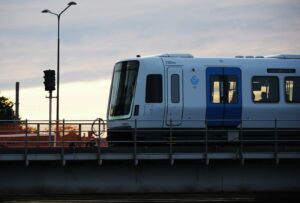As of the beginning of June, Active Travel England is officially a statutory consultee on all planning applications for developments equal to or exceeding 150 housing units, 7,500 m2 of floorspace or an area of 5 hectares. They will help planning authorities implement good walking, wheeling and cycling infrastructure.
This will see ATE reviewing around 3,100 applications a year, equating to 60% of new homes.

Building in active travel at design stage will also help to avoid big increases in vehicle traffic and reduce the need for costly upgrades to major road junctions or other corrective action in the future.
The establishment of ATE’s new status follows a pilot project, which saw the group work with 30 local authorities to assess more than 60 developments over months up until November 2022.
Feedback from a survey at the start of the pilot saw 80% of respondents agree ATE should have a role in the planning system.
Active Travel Commissioner Chris Boardman said: ‘Active travel is essential to improving public health, reducing emissions and tackling the cost of living crisis. That’s why we’re working to ensure millions more people have the opportunity to walk, wheel or cycle from their doorstep to where they need to be.
‘Designing activity back into our neighbourhoods and creating places where children have transport independence is achievable – it just needs smart planning.
‘As a statutory consultee ATE will work with planning authorities and developers to help them ensure new estates give people what they need to get fresh air and exercise, save money on petrol and help fight climate change.’
Following the announcement, active travel charity Sustrans tweeted: ‘Too many new housing developments force people to depend on cars for their everyday journeys, due to a lack of local amenities and poor (or non-existent) active travel and public transport links. It’s encouraging to see steps towards changing this’
















Leave a Reply